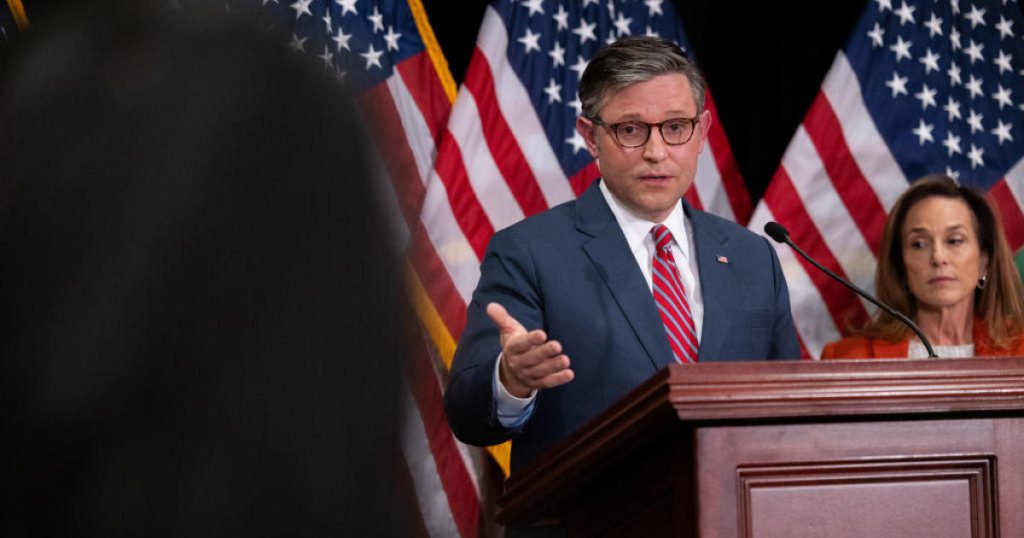House Speaker Mike Johnson has requested that the House Ethics Committee not release a potentially damning report on its investigation into former Rep. Matt Gaetz’s alleged sexual misconduct, drug use, and bribery. Gaetz resigned from Congress after President-elect Donald Trump announced his intention to nominate him as attorney general, just before the House panel was set to vote on releasing the report. The Ethics Committee canceled its vote on the matter. Gaetz was previously the subject of a Justice Department investigation, but no charges were filed, and he denies any wrongdoing.
Johnson argued that it is against House rules to issue ethics reports on former members of Congress and that the Ethics Committee’s jurisdiction only covers sitting members. Democratic Sen. Dick Durbin has called for the report and all relevant documents to be shared with the Senate Judiciary Committee, which is responsible for confirmation hearings for the attorney general nominee. Durbin raised concerns about the timing of Gaetz’s resignation and the implications for his confirmation as attorney general. Republican Sen. John Cornyn also expressed interest in seeing the report, while GOP Sen. Mike Rounds emphasized the importance of transparency in the nomination process.
The request to withhold the report has sparked debate over the handling of sensitive information and the House Ethics Committee’s procedures. Some argue that transparency is essential in ensuring accountability and integrity in government, while others believe that releasing the report on a former member of Congress could set a troubling precedent. The timing of Gaetz’s resignation and the potential impact on his confirmation as attorney general also raise questions about the relevance of the Ethics Committee’s findings and the need for transparency in the nomination process.
The controversy surrounding Gaetz’s alleged misconduct and the Ethics Committee’s investigation highlights the challenges of addressing ethical issues in Congress and maintaining public trust in government institutions. The call for transparency and accountability in handling sensitive information underscores the importance of upholding ethical standards and ensuring the integrity of public officials. The decision on whether to release the report on Gaetz and how it may impact his future career in government reflects broader concerns about ethics, accountability, and the rule of law in American politics.
As the debate continues over the release of the report and its implications for Gaetz’s confirmation as attorney general, lawmakers and the public grapple with questions about accountability, transparency, and the ethical conduct of elected officials. The outcome of this controversy will likely shape discussions on congressional ethics, government transparency, and the nomination process for high-level positions in the future. Ultimately, the handling of the Gaetz investigation and the decision on releasing the report will have far-reaching implications for the ethical standards and integrity of elected officials in the United States.














